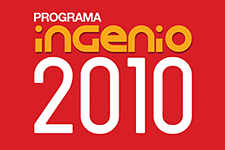| Research groups offering visits 2011 |
 |
 |
|
UAM/IFT
UCM-Th group offers to incorporate two students. Research topics proposed: 1- Alternative cosmological models
In the context of the MultiDark collaboration the University of Salamanca (USAL) group offers to incorporate a student to the theoretical and computationl study of dark matter (DM) accretion in neutron stars. In particular, the main goal is studying the DM density distribution in these objects and subsequent consequences in the dynamics of the dense star.
The MultiDark summer visit offered by the group of the Institute of Astrophysics of Andalusia (IAA-CSIC) in Granada is within the context of the BigBOSS project, which aims to study the nature of dark energy in the universe using baryon acoustic oscillations and the history of the universe's expansion. To do this, we will construct a multi-object spectrograph fed by optical fibers that will measure the spectra of millions of galaxies and quasars. The IAA-CSIC group is involved in the design of the focal plate and a small positioning robot of optical fibers, still in conceptual stage. The activity to develop during the stay shall include the implementation and validation tests for the different mechanical packages concerning a prototype of a fiber positioner 10mm diametral envelope. This work should also be adequately documented in English, detailing the methodology used, as well as should contain all the data and conclusions arising from the tests performed. More information about the BigBOSS project: http://bigboss.lbl.gov. About our group: http://www.iaa.es/~fprada/group
In the frame of the Summer Students Program of the MultiDark project, the Zaragoza University group offer the incorporation of one or two students to the ANAIS and ROSEBUD experriments, aiming both at the direct search of the galactic dark matter using two different detection techniques. ANAIS uses NaI(Tl) scintillators and searches for the annual modulation expected in the dark matter signal. ROSEBUD works in R+D about a novel technnique: scintillating bolometers, able to discriminate the dark matter signals from the dominant backgrounds (betta and gamma particles).
The selected students will collaborate in the operation and maintenance of the detectors at the Canfranc Underground Laboratory. However, most of their work will be carried out at the Zaragoza University facilities. They will learn, for instance, to analyse real data with the ROOT package and will get in touch with the data acquisition software and hardware of the experiments. The work will be done under the super vision and collaboration of the ANAIS and ROSEBUD research teams: students will become a part of them. This support of the research team is essential in experimeental work: it brings an added valuee from the formative point of view because it helps to understand the whole of the experimental effort and not only the detail.
The MultiDark groups at Instituto de FÌsica de Altas Energies (IFAE) in Barcelona and Grupo de FÌsica de Altas EnergÌas de la Universidad Complutense de Madrid (UCM-GAE) are offering to host a student in each group during a three-week period to work in the MAGIC gamma-ray telescopes at the Observatorio de El Roque de Los Muchachos on the island of La Palma. The stay of each student will be divided into two parts: one week at the host group (IFAE or UCM-GAE), during which the student will get familiar with the concepts of gamma-ray astronomy and with the way the MAGIC telescopes work, and a 2-week period at the observatory, in which the student will join the team which will work in the re-commissioning of the MAGIC-I telescope after the replacement of its camera, which will take place in the next months. In particular, the students will work in the calibration of the telescope tracking system. It is foreseen that the stay in La Palma takes place some time between mid August and mid September, and so the successful student must be available to travel in those dates.
IFIC’s group offers the summer students to get acquainted with the ANTARES and KM3NeT neutrino telescopes. There will be a variety of activities. They will learn to use at a basic level the data analysis tools with simple, but pedagogical problems using the ROOT package. They will make small simulations on concrete aspects of some problems related to ANTARES. They will prepare, guided by the group members, presentations on topics linked to dark matter and they will be encouraged to understand the essentials of the analyses being performed by some of the members of the research group. Finally, they will attend to the remote control of the ANTARES detector from the dedicated room installed at IFIC.
The group of the Universitat Politècnica de València can offer the incorporation of one student to the experiment ANTARES in the topic related to the acoustic detection system AMADEUS. There are two complementary tasks planed: -Instrumentation: the student will work in the development and tests of a compact acoustic source able to generate neutrino-like signals. |




